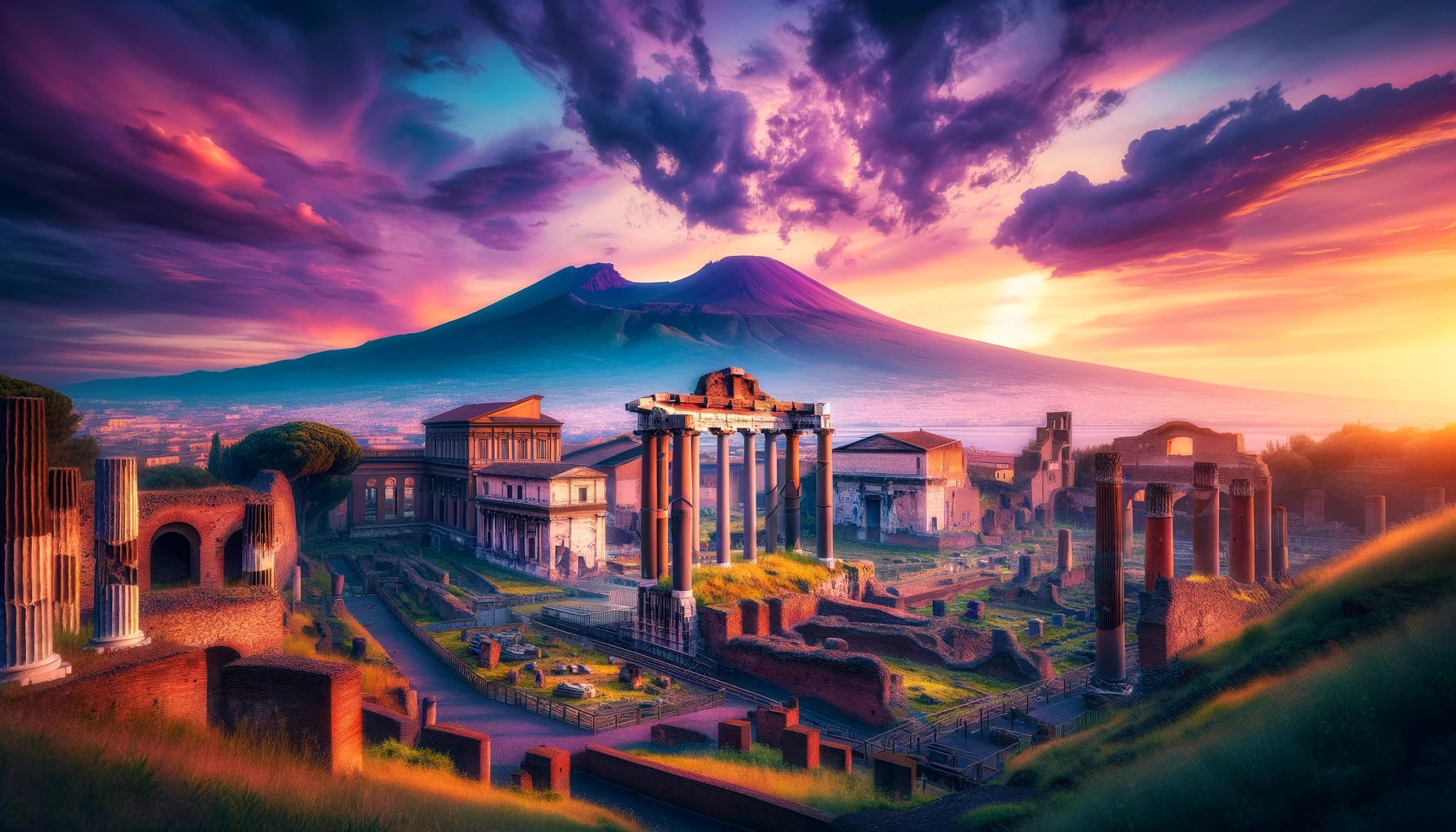Discover how AI technology has unlocked the mysteries of a scroll buried since AD 79, offering a fascinating glimpse into the past.

Introduction
Imagine if we could turn back time and peek into the very moments when history was being made. Sounds like a plot from a sci-fi movie, right? But what if I told you that, thanks to the marvels of modern technology, this is becoming possible? Not by time travel, but through the power of Artificial Intelligence (AI). In an extraordinary feat, AI has helped scholars read a scroll that was buried when Mount Vesuvius erupted in AD 79, preserving a slice of history that was thought to be lost forever.
The Discovery
Our story begins with the rediscovery of a scroll, charred and seemingly unreadable, buried under the ashes of Vesuvius nearly two millennia ago. This scroll, among many others, offers a direct link to the past, to the lives of people who lived in the shadow of the volcano.
The Role of AI
Enter AI, the hero of our tale. Using sophisticated algorithms, AI has begun to unravel the texts hidden within the fragile fibers of the ancient scroll. It’s like having a super-sleuth at our disposal, one that can see beyond the smudges and scars left by time.
How AI Works its Magic
AI uses machine learning to interpret the shapes and traces of ink on the scroll, distinguishing them from the damage and distortions. It’s akin to teaching a child to read, but instead of ABCs, the AI is learning ancient scripts.

The Significance of the Scroll
What does this scroll tell us? It’s not just about the words written on it; it’s a gateway to understanding the culture, politics, and daily life of a civilization frozen in time by a volcanic eruption.
Challenges Overcome
The journey hasn’t been easy. The fragility of the scrolls, the complexity of ancient languages, and the need for precision have all posed significant hurdles. Yet, AI has steadily navigated these challenges, proving its worth as a tool for historical discovery.
Future Implications
This breakthrough isn’t just about reading an ancient scroll. It opens up new possibilities for archaeology, history, and even linguistics. What other secrets lie buried in the archives of the past, waiting for AI to reveal them?
AI in Archaeology
The application of AI in archaeology marks a new era of exploration. From deciphering lost languages to reconstructing ancient sites in virtual reality, the potential is boundless.
Ethical Considerations
With great power comes great responsibility. The use of AI in historical research raises questions about privacy, ownership, and the accuracy of interpretations. It’s a delicate balance between uncovering the past and respecting it.
Public Perception and Interest
This discovery has captured the imagination of the public, bridging the gap between ancient history and cutting-edge technology. It’s a testament to human curiosity and our relentless pursuit of knowledge.
How to Get Involved
Are you fascinated by this melding of the past and the future? There are many ways to get involved, from supporting archaeological research to studying AI technology. The past is a rich tapestry waiting to be explored.
The Continuing Journey of Discovery
The deciphering of the Vesuvius scroll is just the beginning. As AI technology advances, who knows what other mysteries will be unveiled? We stand on the brink of a new frontier in our understanding of history.

FAQs
- What was written on the scroll?
- The exact contents are still being analyzed, but preliminary findings suggest it could be a philosophical text, offering insights into the intellectual life of the time.
- How did AI manage to read the scroll?
- By learning to distinguish between ink and charred papyrus through thousands of images and patterns, effectively ‘training’ itself to read the ancient script.
- Why is the discovery of the scroll important?
- It provides a direct link to the past, offering unparalleled insights into the culture, society, and thoughts of people living nearly two thousand years ago.
- What challenges does AI face in deciphering ancient texts?
- AI must overcome the deterioration of materials, the complexity of ancient languages, and the need for precise interpretation without causing damage to the fragile artifacts.
- Can AI be used to decipher other ancient documents?
- Absolutely. This success opens the door to applying similar techniques to other unreadable texts, potentially unlocking a wealth of historical knowledge previously thought lost.
In conclusion, the role of AI in unearthing the secrets of the past is not just a leap forward in technology but a bridge to our shared history. It’s a vivid reminder of how the past, though silent, can still speak volumes to those willing to listen. The scroll buried by Vesuvius is a message in a bottle from antiquity, and AI has just helped us break the seal. What we find inside will undoubtedly enrich our understanding of humanity’s story.
Sources The Guardian


